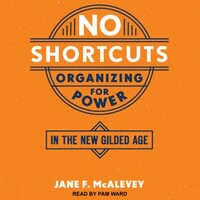Take a photo of a barcode or cover
informative
inspiring
reflective
medium-paced
It was a hard read that just repeated a lot of the introduction. It was a lot.
I have been reading book after book after book trying to get a sense of how the American left can [re]build power in the face of the brilliant, devastating, decades-long strategies employed by the corporate right to dominate our social & political lives. This book is one of the best guides that I have found so far.
A protege / student of Frances Fox Piven, McAlevey’s work includes the kind of detailed historical grounding and analysis that Piven is known for, and she shares Piven’s deep skepticism / criticism of Saul Alinsky’s “community organizing” model, but she departs from Piven by arguing that the left CAN build power with the right theories of power and change (rather than Piven’s contention in “Poor People’s Movements” that the left can more effectively harness moments of mass refusal / unrest, but can not do much to generate moments of mass refusal / unrest). McAlevey argues that the labor movement has shifted from an organizing model to a mobilizing model — and that this shift is at the heart of the wider decline of the entire left.
McAlevey’s writing is crisp, her analysis is smart, and her argument is persuasive. This book is mostly rooted in detailed case studies from this millennium, and having this contemporary frame of reference is very instructive. Most interesting to me were her explorations of the Chicago Teacher’s Strike of 2012 and the 2008 unionization of the Smithfield meat plant in the extremely anti-union Tar Heel, NC.
This read is a bit more demanding than some others that I have read; I wouldn’t consider it a pleasure read. It is, however, a remarkable read and an instructive guide. I’d highly recommend it to any friends interested in left / progressive capacity building.
A protege / student of Frances Fox Piven, McAlevey’s work includes the kind of detailed historical grounding and analysis that Piven is known for, and she shares Piven’s deep skepticism / criticism of Saul Alinsky’s “community organizing” model, but she departs from Piven by arguing that the left CAN build power with the right theories of power and change (rather than Piven’s contention in “Poor People’s Movements” that the left can more effectively harness moments of mass refusal / unrest, but can not do much to generate moments of mass refusal / unrest). McAlevey argues that the labor movement has shifted from an organizing model to a mobilizing model — and that this shift is at the heart of the wider decline of the entire left.
McAlevey’s writing is crisp, her analysis is smart, and her argument is persuasive. This book is mostly rooted in detailed case studies from this millennium, and having this contemporary frame of reference is very instructive. Most interesting to me were her explorations of the Chicago Teacher’s Strike of 2012 and the 2008 unionization of the Smithfield meat plant in the extremely anti-union Tar Heel, NC.
This read is a bit more demanding than some others that I have read; I wouldn’t consider it a pleasure read. It is, however, a remarkable read and an instructive guide. I’d highly recommend it to any friends interested in left / progressive capacity building.
informative
hopeful
informative
inspiring
medium-paced
informative
inspiring
reflective
medium-paced
informative
reflective
fast-paced
A book on organizing unions that rejects the Alinsky model of organizers mobilizing workers to the more ground-up model employed by the CIO in the nineteen-thirties. Organizing workers and letting rank and file take a more active role in organizing workers. Interesting idea but definitely a tall order with no shortcuts.
A series of essays. Some work. Some don't. I really like her point that "the reason that progressives have experienced a four decade decline in the United States is because of a significant and long-term shift away from deep organizing and toward shallow mobilizing." She's right. Big Labor, Planned Parenthood, much of the Democratic Party is in deep decline. Support is very shallow. Pollsters and consultants push papers around, squawk at each other on cable news, then are shocked when elections don't turn out like they thought. They've lost touch with regular people and until they get back to the basics they will continue to slide into irrelevancy.
Important, insightful book on organizing unions, community groups and such. Jane McAlevey argues that only massive member-led organizing, not precision staff-led advocacy or mobilizing, can repair and rebuild our communities, nation and world. The book starts with an introduction worth reading; unlike many introductions, this one is integral to the book's message. The first chapter relays the history of the turn from 'organizing'(building member-led bodies) to 'mobilizing'(professionally-led bodies acting on worker's behalf) with particular attention to Saul Alinsky's role.
The last chapters of the book chronicle several different labor successes in a wide range of subcultures.
The last chapters of the book chronicle several different labor successes in a wide range of subcultures.







